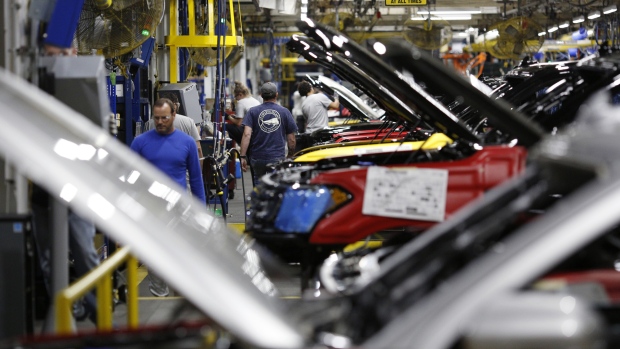Nov 28, 2018
Ford reworks plants to build more SUVs with same headcount
, Bloomberg News

Ford Motor Co. is reworking its U.S. plants to lower costs and boost output of big sport utility vehicles. And unlike rival General Motors Co., the moves won’t cut headcount.
The automaker will eliminate shifts at factories in Michigan and Kentucky and transfer about 1,150 workers to other plants to support stronger-selling models, spokeswoman Kelli Felker said in an interview.
A factory in Louisville that produces the slower-selling Escape and Lincoln MKC SUVs is going down to two shifts, from three, in the spring. Those 500 workers will move to another Ford plant in the city to boost production of the red-hot Lincoln Navigator and Ford Expedition SUVs, Felker said. Expedition retail sales are up 36 per cent this year, while Navigator has soared by more than 80 per cent.
In Flat Rock, Michigan, Ford is dialing down to one shift, from two, at the factory producing the Mustang. Sales of the muscle car have declined 1.3 per cent this year, including a 6 per cent drop last month. About 500 workers there will move to a plant in Livonia, Michigan, which produces transmissions for the F-150 and Ranger pickups, Felker said. Another 150 will be offered jobs at other Ford facilities, she said.
“Ford is rebalancing production at some of our U.S. plants, further increasing our efficiency while retaining jobs for all full-time hourly employees,” Felker said.
Workers Relocating
The United Auto Workers union said its contract with the automaker provides for the relocation of workers affected by shift reductions.
“The UAW will be working with our members to ensure they have continuous work and help minimize, as much as possible, any hardship on members and their families,” Rory Gamble, UAW’s vice president in charge of Ford, said in a statement.
Taking a plant down to one shift can threaten its survival. The three vehicle-assembly plants GM said earlier this week it plans to close are operating on this basis. But Ford has said it’s investing US$200 million in Flat Rock and will begin building its new self-driving car there in 2021.





